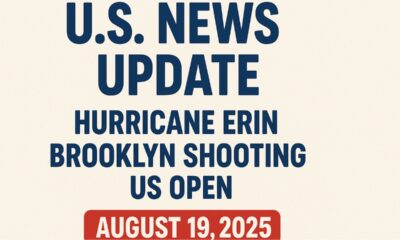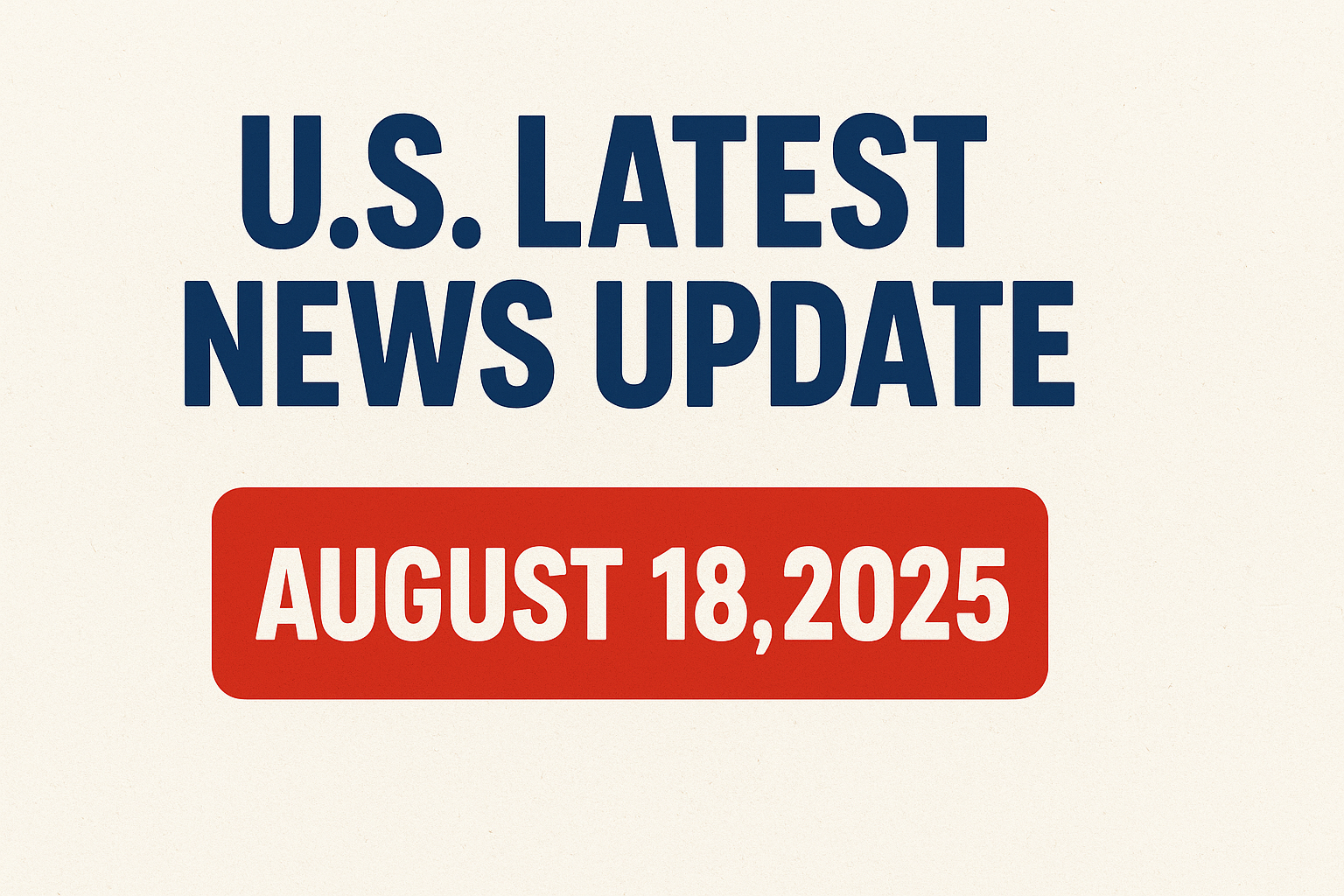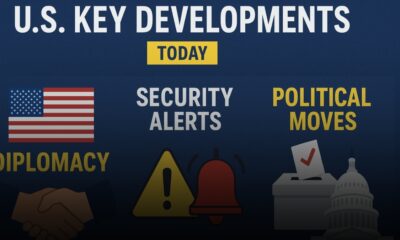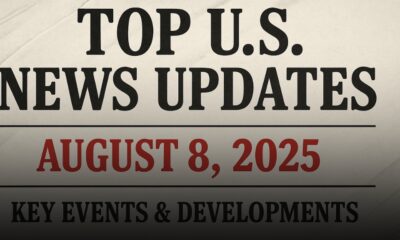Entertainment
Facebook | Connect | Share & Grow

Facebook ek mashhoor social networking platform hai jahan log apne doston, family, aur duniya bhar ke logon se connect karte hain. Is platform ka use log personal sharing, business promotion, group discussions, aur online marketing ke liye bhi karte hain. Facebook par aap photos, videos, status updates share kar sakte hain aur comments ya likes ke zariye doosron se interact kar sakte hain. Aaj Facebook sirf ek app nahi balkay ek global digital community ban chuka hai jahan har shakhs apni awaz utha sakta hai.
Specifications (Table Format)
| Feature | Description |
|---|---|
| Platform Name | |
| Launched | February 4, 2004 |
| Founder | Mark Zuckerberg & Co-founders |
| Parent Company | Meta Platforms Inc. |
| Headquarters | Menlo Park, California, USA |
| Users (2025) | 3+ billion monthly active users |
| Available On | Android, iOS, Web (Desktop/Laptop) |
| Key Features | News Feed, Stories, Reels, Messenger, Marketplace, Groups, Pages |
| Languages | 100+ Languages |
| Account Type | Free with optional ads and business tools |
| Privacy Options | Public, Friends Only, Custom Settings |
| Monetization Tools | Creator Studio, Ads Manager, Brand Collabs, Facebook Shops |
Other Information:
- Business Use: Facebook Pages and Ads allow businesses to target audiences globally.
- Content Sharing: Supports text, image, video, and live streaming formats.
- Security: Offers two-factor authentication, activity monitoring, and privacy control.
- Messenger: Separate but integrated app for private messaging and video calls.
- Reels & Stories: Short-form content features to compete with Instagram & TikTok.
- Community Building: Ideal for interest-based groups and brand-building.
- Meta Ecosystem: Facebook is connected with Instagram, WhatsApp, and Threads under Meta.
Entertainment
U.S. Key Developments | Today | Diplomacy, Security Alerts, and Political Moves

August 15, 2025, brought a series of significant developments in U.S. foreign policy, domestic politics, and security concerns. From high-profile summits with global leaders to emerging political strategies and security alerts, these events reflect America’s shifting role in international diplomacy while managing critical issues at home.
1. Trump–South Korea Summit Scheduled for August 25
The White House confirmed that President Donald Trump will host South Korean President Lee Jae Myung in Washington on August 25.
Focus Areas:
- Strengthening economic cooperation in semiconductors and energy transition
- Expanding defense ties in response to regional security threats
- Joint initiatives in advanced manufacturing and technology
This summit marks a crucial step in reinforcing U.S. alliances in the Indo-Pacific, particularly amid growing competition with China.
2. Trump–Putin Summit in Alaska on Ukraine Crisis
In a surprising diplomatic move, President Trump and Russian President Vladimir Putin will meet in Alaska to discuss the ongoing war in Ukraine.
Key Discussion Points:
- A potential territorial exchange to resolve the conflict
- Sanctions relief in exchange for verifiable security guarantees
- Russia’s role in broader global energy markets
This meeting has generated both optimism and skepticism, with analysts debating whether a lasting peace can be achieved.
3. U.S. Independence Day Greetings to India and Pakistan
The Biden administration delivered carefully crafted diplomatic messages for both India’s and Pakistan’s Independence Days.
- To India (August 15): A warm congratulatory note emphasizing democratic values and mutual security interests.
- To Pakistan (August 14): A more pragmatic message, focusing on cooperation in critical minerals and energy sectors.
This demonstrates Washington’s nuanced balancing act between two historical rivals in South Asia.
4. California’s Special Election on U.S. House Redistricting
Governor Gavin Newsom has called for a special election to redraw congressional maps in California.
Reason for the Move:
- Countering Republican-led redistricting efforts in Texas
- Protecting equitable political representation
- Addressing concerns over gerrymandering and voter fairness
This political development could set a precedent for other states facing similar challenges.
5. Bomb Threat at U.S. Embassy in Seoul
On South Korea’s Liberation Day, the U.S. Embassy in Seoul faced a bomb threat traced to a known hoax perpetrator.
Investigation Findings:
- No explosives found
- The alias used matched prior false alarm incidents
- Authorities emphasized vigilance and enhanced digital security monitoring
While no harm was caused, the event underscored the ongoing security challenges faced by U.S. diplomatic facilities abroad.
U.S. Developments on August 15, 2025
| Event | Key Details |
|---|---|
| Trump–South Korea Summit | Scheduled for Aug 25; focus on trade, technology, and security |
| Trump–Putin Summit | Talks on Ukraine peace and global energy markets |
| U.S. Independence Day Messages | Warm greeting to India; economic focus with Pakistan |
| California Redistricting Election | Special vote to redraw maps, counter Texas political strategies |
| Seoul Embassy Bomb Threat | False alarm; investigation highlights cyber-security threats |
Political and Strategic Implications
The timing of these events reflects the U.S. government’s multi-pronged approach to international relations:
- Diplomatic Engagement: Engaging both allies and adversaries to shape global outcomes.
- Domestic Safeguards: Protecting democratic processes through electoral fairness.
- Security Vigilance: Balancing cyber and physical security in a complex threat environment.
Conclusion
August 15, 2025, was a defining day for U.S. diplomacy and domestic politics. The announced summits, political maneuvers, and security alerts highlight the nation’s active role in shaping global developments while safeguarding democratic institutions at home. As these events unfold, their outcomes will likely influence both the 2025 political landscape and America’s international standing.
Entertainment
U.S. Tariff Truce | Heatwave | and Political Shifts

1. Tariff Truce Extended for 90 Days
The United States and China have agreed to extend their current tariff truce by another 90 days, preventing sharp increases in trade duties. This extension is intended to maintain stable trade conditions ahead of the holiday shopping season and has provided a boost to global market confidence.
2. New BLS Chief Picked Amid Data Integrity Debate
President Trump has nominated economist E.J. Antoni, affiliated with the conservative Heritage Foundation, as the new commissioner of the Bureau of Labor Statistics. The move comes after the unexpected dismissal of the previous commissioner and has sparked discussion over the potential politicization of U.S. economic data.
3. Intense Heatwave Spreads Across U.S.
A severe heatwave is affecting large parts of the United States, with the East Coast experiencing record-breaking highs across New England and the Mid-Atlantic. In the West, temperatures have soared above 110 °F, prompting health warnings and raising wildfire risks. Authorities caution that extreme heat conditions may persist.
4. South Africa Prepares Revised Trade Pitch
In response to heavy U.S. tariffs, South Africa is finalizing a revised trade proposal aimed at lowering the 30% duty imposed on many of its exports. The move seeks to reinvigorate stalled trade negotiations between the two countries.
August 12 Key U.S. Developments
| Topic | Key Insight |
|---|---|
| Tariff Truce Extended | U.S. and China delay tariff hikes by 90 days, calming markets |
| New BLS Nomination | Antoni chosen amid concerns over independence of official economic statistics |
| Nationwide Heatwave | Record-breaking temperatures raise public health and wildfire concerns |
| South Africa Trade Offer | Revised deal proposal aims to ease U.S. tariff pressure on exports |
Key Takeaways
- Trade Stability: The 90-day tariff extension offers breathing space for businesses while keeping the door open for further negotiations.
- Economic Data Oversight: The appointment of E.J. Antoni has stirred political debate about the credibility and independence of government-reported economic data.
- Climate Impacts: The ongoing heatwave highlights the intensifying effects of climate change and the need for improved emergency response systems.
- Global Diplomacy: South Africa’s revised trade bid underscores the impact of U.S. trade policy on emerging economies and the importance of maintaining open dialogue.
Entertainment
U.S. News Highlights | August 12, 2025

August 12, 2025, brought significant developments in U.S. economic policy, foreign diplomacy, energy markets, and domestic governance. From trade negotiations easing global tensions to planned strategic security talks, the day showcased America’s influence on both international and local fronts.
2. U.S.–China Tariff Truce Extended
The United States and China agreed to extend their existing tariff truce by 90 days, preventing a major escalation in import duties. This move comes as both sides seek to protect economic stability ahead of peak trading seasons.
Economic Impact:
- Avoids tariff hikes that could have affected billions in goods.
- Provides businesses with breathing space for supply chain adjustments.
- Signals potential for renewed high-level negotiations between the United States and China.
Details Table:
| Aspect | Information |
|---|---|
| Duration | 90 days |
| Purpose | Prevent tariff escalation |
| Markets Reaction | Positive – stocks and oil prices rose |
| Trade Volume Impact | Stabilization expected |
3. Asian Markets Respond Positively
Global investors reacted with optimism to the tariff extension. Japan’s stock market hit record highs, while other Asian markets posted steady gains.
Market Drivers:
- Technology sector growth.
- Weak Australian interest rates are supporting investment.
- Confidence in U.S.–China trade stability.
Details Table:
| Market | Reaction |
|---|---|
| Japan Nikkei Index | Record high |
| Hong Kong Hang Seng | Moderate gains |
| Shanghai Composite | Slight increase |
4. Oil Prices Climb on Trade Relief
Crude oil prices rose as easing trade tensions reduced fears of global demand disruptions. Investors also looked ahead to upcoming U.S. inflation data and the Trump–Putin summit.
Price Overview:
- Brent crude: modest increase.
- WTI crude: mirrored Brent’s gains.
Details Table:
| Factor | Impact on Oil |
|---|---|
| Trade truce | Boosted demand outlook |
| Inflation data wait | Investors cautious |
| Geopolitical talks | Added market stability |
5. U.S.–South Korea Summit Planned for August 25
President Donald Trump will meet South Korean President Lee Jae Myung in Washington to discuss security cooperation and economic ties.
Key Discussion Areas:
- Semiconductor production.
- Renewable energy transition.
- Critical technology investments.
- Defense funding and military cooperation.
Details Table:
| Aspect | Information |
|---|---|
| Date | August 25, 2025 |
| Location | Washington, D.C. |
| Main Topics | Security, economy, tech |
| Strategic Impact | Strengthens U.S.–Korea ties |
6. Federal Takeover of D.C. Police Sparks Outcry
President Trump’s decision to take control of the D.C. Metropolitan Police Department and deploy 800 National Guard troops drew sharp criticism.
D.C. Mayor Muriel Bowser and several civil rights leaders labeled the move as unconstitutional, while legal challenges are already underway.
Details Table:
| Aspect | Information |
|---|---|
| Action Taken | Federal control of D.C. police |
| Troops Deployed | 800 National Guard soldiers |
| Main Criticism | Unconstitutional overreach |
| Legal Response | Lawsuits filed |
7. Summary of August 12, 2025 Developments
| Topic | Key Insight |
|---|---|
| Tariff Truce Extended | Stabilizes trade, boosts markets |
| Asian Markets Rally | Technology and investment growth |
| Oil Prices Rise | Eased trade tensions improve demand outlook |
| U.S.–Korea Summit | Focus on tech, energy, and defense |
| D.C. Police Federal Control | Sparks legal and political controversy |
8. Conclusion
The events of August 12, 2025, highlight the U.S.’s role as both a stabilizing and polarizing force in world affairs. Economic diplomacy, energy market reactions, strategic security partnerships, and domestic governance decisions all played a role in shaping the day’s headlines. The coming weeks will determine whether these developments lead to long-term stability or renewed tensions.

















